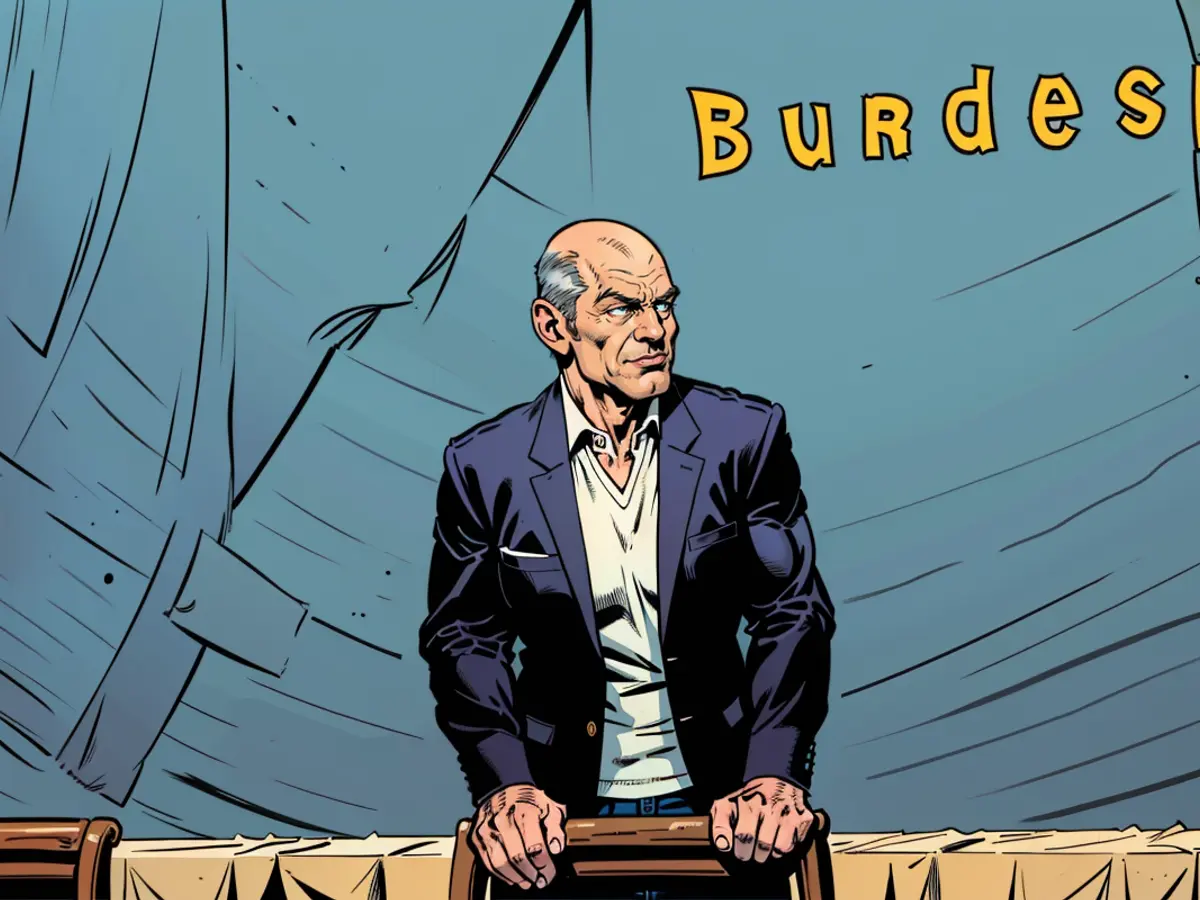Scholz will second term as Chancellor and defends deterrence course against Putin
The SPD is "a very closed party" and will campaign in the Bundestag elections to win, stated Scholz right away in the nearly two-hour long press conference. He left no doubt that he would again be the Chancellor candidate: "I will run for Chancellor, become Chancellor again."
Poor survey results are "an incentive" to achieve better ones, Scholz said about the slide of the Chancellor party in the polls and his own popularity. He seemed convinced that he and his party would turn things around before the next Bundestagswahl on September 26, 2021.
He wants to convince through actions and clarity, emphasized Scholz. He referred to his promise before the last Bundestagswahl to raise the minimum wage. And he named other topics for the future, such as stable pensions and employment that pays off.
Before the upcoming state elections in East Germany in September, Scholz accused the AfD and the BSW (Left Party) of undermining social cohesion. "We must do everything to prevent the polarizing entrepreneurs, the splitting entrepreneurs from setting the tone in our society," he said. His response to "soundbite politics" is "modernization, technological progress, growth, and social cohesion," said the Chancellor. He will relentlessly campaign for this.
Regarding the recently controversial topic of migration in East Germany, Scholz sees initial successes: Abschiebungen have increased by 30 percent, he said. Scholz hinted that deportations to Afghanistan could soon begin - and possibly other countries like Syria.
Scholz acknowledged that it involves complex challenges that can only be addressed through a variety of measures on different levels. "Unlike before," Scholz's government has "tackled this task," and will "not give up on it," emphasized the Chancellor.
In the field of foreign policy, Scholz defended the plans for the stationing of long-range US weapons in Germany from 2026. The decision serves to "prevent war," Scholz said. "We need deterrence options beyond what we already have in missiles, for example."
He can "for NATO as a whole" and "for all in the SPD" express regret that Russia "has so massively set itself against all the arms control agreements of the last decades," Scholz said and referred to the stationing of Russian weapons systems, for example, in Kaliningrad. "We all wish that we could live in a world again where arms control is of great importance." However, there is no interest in such talks in Moscow.
After the withdrawal of US Vice President Joe Biden from the presidential race, Scholz sees good chances for his deputy Kamala Harris to win. "I consider it very likely that Kamala Harris will win the election," he said. The decision on this lies with the voters in the United States.
Scholz described the US Vice President Harris, whom he had met several times, as "a competent and experienced politician who knows exactly what she's doing." He did not want to comment directly on Trump. It is clear, however, that such an important and significant partnership as that with the US "cannot depend on who the President of the United States is."
- Despite the SPD's poor survey results, Chancellor candidate Olaf Scholz remains confident about his party's performance in the upcoming Bundestag elections.
- In response to the AfD and BSW's influence in East German politics, Chancellor Scholz emphasized the need for modernization, technological progress, and social cohesion.
- The Chancellor candidacy of Scholz has been influenced by his commitment to raise the minimum wage, a promise made before the last Bundestagswahl.
- The Alliance Sara Wagenknecht, a potential coalition partner for the SPD, has criticized Scholz's stance on the US's planned deployment of long-range weapons in Germany.
- Kamala Harris, the Democratic vice presidential candidate in the US Election, has the support of Chancellor Scholz, who considers her a competent and experienced politician.
- The Chancellor Scholz has advocated for deterrence options beyond missiles, citing the stationing of long-range US weapons in Germany as a necessary measure to prevent war.
- The deployment of US weapons in Germany, according to Scholz, serves to uphold arms control agreements and counteract Russia's mass opposition to such agreements.
- Putin's Russia has shown no interest in arms control talks, as evidenced by its deployment of weapons systems in Kaliningrad, a concern for chancellors like Scholz.
- The Republican party in the US Election has also expressed opposition to the planned deployment of US weapons in Germany, a point of contention between the two countries.
- Scholz's term of office as Chancellor will rely on his ability to navigate complex foreign policy challenges, such as the US's deployment of weapons in Germany and Russia's opposing stance on arms control.







